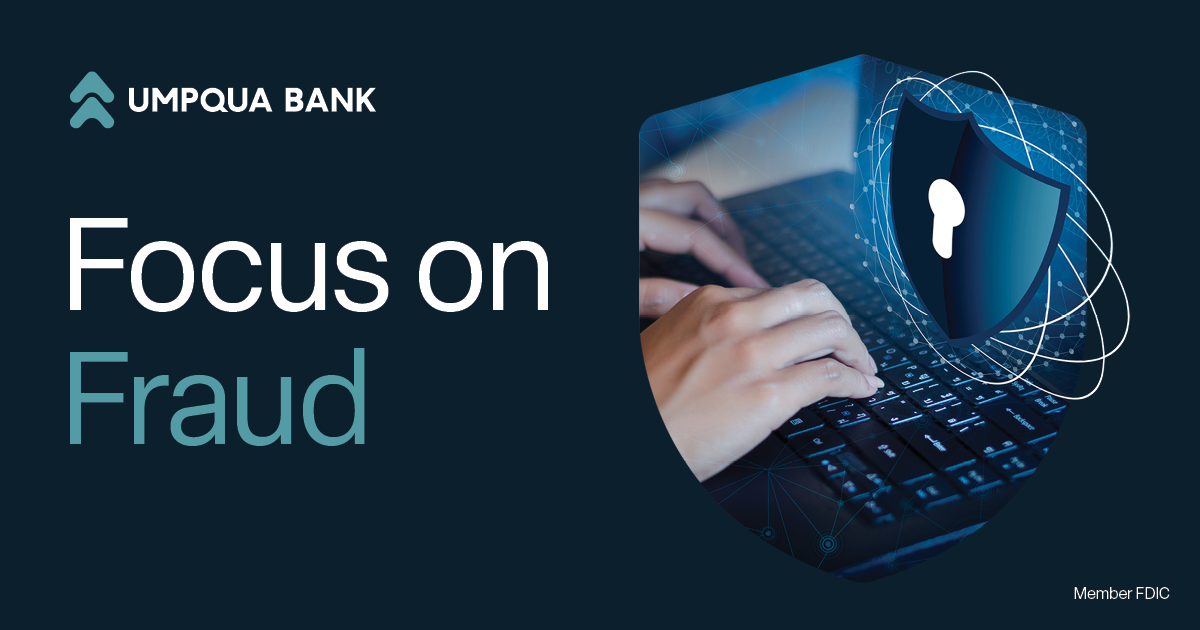Focus on Fraud: External Transfers

Imposter scams are a prevalent form of fraud where scammers pose as trusted individuals or organizations and make urgent demands for payments or sensitive data, like bank account information or your Social Security number. These scams can occur through phone calls, emails or text messages.
According to the Federal Trade Commission (FTC), imposter scams were the most commonly reported scam category last year, with a staggering $2.95 billion reported lost.
These fraudsters go to great lengths to gain your trust and use tactics that are continually evolving. They want access to your accounts, and once in, they can transfer your money out, change your contact information and even change your password.
Protect yourself by staying informed and vigilant.
How an imposter scam works
- You receive an unexpected call or message about a routine issue, such as a suspicious purchase on your Amazon account, a virus on your computer or a supposed account breach.
- The scammer may transfer you to someone they claim can help resolve the problem. In reality, the “help” is another fraudster in on the scam.
- Once the scammer accesses your account, they can send themselves your money via methods including Zelle®, external transfers, Bill Pay or wire transfer.
 |
Visit our Security Center todayLearn five SMART steps to take, helpful tips and more. |
Common types of imposter scams
Government or Company Imposter
These scammers claim to be from the Social Security Administration, the IRS or even Medicare, saying you owe money and using high-pressure legal threats and tactics to compel you to provide personal data or account numbers.
They may also demand urgent payments via wire transfers, gift cards or tell you to make a deposit at a Bitcoin ATM.
Tech Support Imposter
The scammer calls, emails or sends a pop-up security alert, claiming your computer or phone has a virus or has been hacked. They direct you to call a fraudulent support number, ask to screenshare or “fix” it for a price.
Family Imposter
You receive a frantic email, text or desperate call from a relative, asking you to wire or transfer money. The message is fake. Fraudulent calls may use AI technology to clone your loved one’s voice. Red flags include urgency, a flat speaking tone and unnatural speech.
Bank Imposter
This scam takes several forms, each pretending to be from someone trusted at your bank — many times, the fraud department.
-
- Fake Bank Call Scam: Scammers call, asking for your account details or money. Your bank will never call to ask for this information.
-
- Authentication Code Scam: Fraudsters request a code you receive, tricking you into giving them the authentication needed to access your account.
-
- Payment Cancellation Scam: Scammers send fictitious messages claiming your electronic payment was canceled and requesting your credit card information.
-
- Account Problem Scam: Someone from “the bank” calls or texts and says they’ve discovered a suspicious transaction, Zelle® payment or other account issue. They ask for your credentials and for the one-time passcode that lets them in.
-
- Money Transfer Scam: Fraudsters instruct you to move money from your bank, investment or retirement account to protect it. In reality, you’re moving it to their account.
Remember, your bank will never contact you to ask for passwords, one-time codes or account information. Only provide identifying information if you called the bank directly, not from a number or link in an email, text or phone call. This may include your login ID, Social Security number or account number, but never a password.
How to avoid being scammed by imposters
-
- Verify the source. Contact the agency, company or bank directly to confirm if the request is legitimate.
-
- Don’t answer calls from the bank. Caller ID is not foolproof and phone numbers can be spoofed. Instead, call your bank back directly from the number on the back of your debit card.
-
- Don’t click on links. Your bank will never text you with links, and if they reach out to you to verify a check or payment or to confirm a login, they will never ask for account or personal data; they already have it.
-
- Don’t keep it a secret. Scammers may say that your bank is “in on it,” or claim your family cannot be trusted and tell you what you should say. Instead, tell the truth. Bankers are trained to spot fraud and can help keep your money safe.
If you suspect fraud, call Umpqua Bank immediately at 866-486-7782.
You may also file a fraud report online with the ReportFraud.ftc.gov
For more tips and security suggestions, be sure to check out our other Focus on Fraud topics, including:






